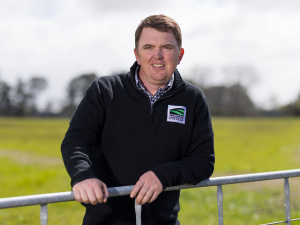Editorial: RMA reforms uproar
OPINION: The euphoria over the Government’s two new bills to replace the broken Resource Management Act is over.
 Federated Farmers president Wayne Langford says it’s great to see many farmers are feeling a whole lot more positive.
Federated Farmers president Wayne Langford says it’s great to see many farmers are feeling a whole lot more positive.
Farmer perceptions of current economic conditions have risen to their highest level in almost a decade.
Results of Federated Farmers latest Farm Confidence survey released this week found a net 33% of respondents believe conditions are currently good, a dramatic turnaround from the record low of -66% just a year ago, and up from 2% in January this year.
The turnaround in farmers confidence comes on the back of lower interest rates, strong dairy and meat prices, and government cuts to excessive red tape.
More farmers are also confident of profitability: confidence about current farm profitability is at the highest level ever recorded in the survey, with a net 65% of farmers feeling confident about profitability - up 12 points since January.
Federated Farmers president Wayne Langford says the survey shows the rural mood has improved significantly this year, rebounding from record lows 12 months ago.
"Farming families have been through some really tough years recently and that's weighed heavily on our rural communities," says Langford.
"For the last few seasons, we've been farming with sky-high interest rates, rising on-farm costs, fluctuating incomes, and a web of red tape that felt near impossible to navigate.
"It's great to see our July survey showing many farmers are feeling a whole lot more positive, thanks to better returns, lower interest rates, and easing inflation.
"We've also seen a government that's been willing to work with farmers and scrap some of the most unworkable, impractical rules that were killing the rural economy."
Langford says lifting farmers' confidence has been his number on focus since stepping into the role as president and he's taken that responsibility seriously.
"We took a long hard look at what was concerning farmers the most back in 2023 and came out with 12 key policy changes for the next government to implement.
"We called it a 'roadmap for restoring farmer confidence' and we've been relentless in pursuing the changes we knew would make the biggest difference behind the farm gate."
That list included fixing unworkable freshwater rules, getting RMA reform right, urgently reviewing our methane reduction targets, and rethinking the rules for carbon forestry.
"The Government has really listened to farmers, got stuck in making some much-needed changes, and they've essentially ticked 11 of those 12 policy priorities off the list."
Langford points out that it's important to note that not all farmers are feeling positive, with arable farmers in particular continuing to face significant headwinds and challenges.
"Many arable farmers aren't even breaking even, and let's not forget the farmers in Nelson Tasman who are facing a very long recovery after the recent flooding."
The survey found that while confidence in current conditions is high, the forward-looking indicators have started to soften.
A net 6% of farmers expect economic conditions to improve over the next 12 months - still in positive territory, but well down from 23% in January. Future profitability expectations are also softer, sitting at a net 18%, down from 31% earlier this year.
The dairy sector led the decline, with expectations dropping 32 points, likely due to concerns about poorer milk prices, while meat and wool remains most upbeat.
"There's still plenty of uncertainty on the horizon," Langford says.
"Commodity price volatility, arable sector struggles, and global market jitters are making farmers a bit more cautious about what's coming."
Despite global uncertainty, farmers remain focused on strengthening their financial footing, with 43% planning to reduce debt in the next 12 months, almost double from a year ago.
"Farmers are using the breathing room from lower interest rates and improved profitability to pay down debt and build resilience. That's smart business," Langford says.
Dairy Women's Network (DWN) has announced that Taranaki dairy farmer Nicola Bryant will join its Trust Board as an Associate Trustee.
Rural Women New Zealand (RWNZ) says it welcomes the release of a new report into pay equity.
Red meat exports to key quota markets enjoyed $1.4 billion in tariff savings in the 2024-25 financial year.
Remediation NZ (RNZ) has been fined more than $71,000 for discharging offensive odours described by neighbours as smelling like ‘faecal and pig effluent’ from its compositing site near Uruti in North Taranaki.
Two kiwifruit orchards in the Bay of Plenty and one in Northland are this year's finalists for the Ahuwhenua Trophy competition.

OPINION: A mate of yours truly reckons rural Manawatu families are the latest to suffer under what he calls the…
OPINION: If old Winston Peters thinks building trade relations with new nations, such as India, isn't a necessary investment in…